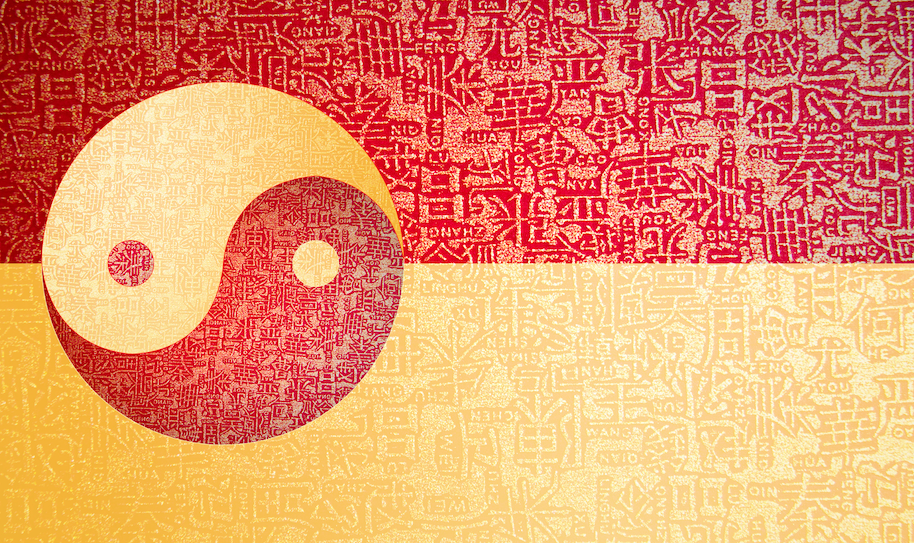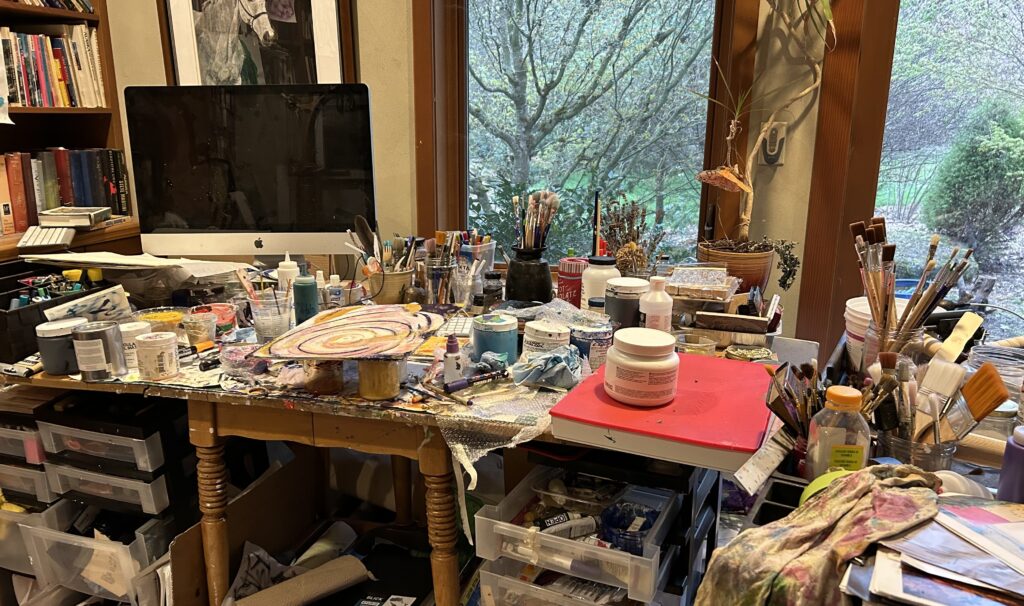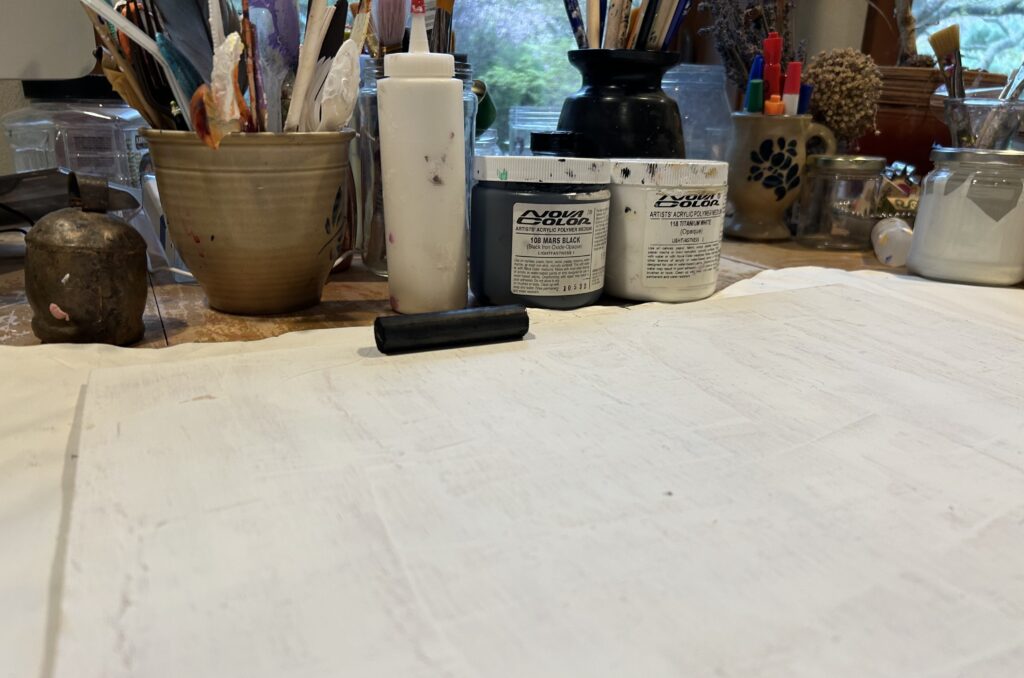
To be able to hold a paradox requires holding the tension between opposites—seemingly contradictory forces.
When the world appears too chaotic it’s tempting to want to run from the prickly arms of complexity into the simplicity of black-and-white thinking.
Except that usually doesn’t work. For example, we can suppress the contradictions within us by trying to kill off parts we don’t like. (Like not wanting to be seen as sluggish or vulnerable.) But the contradictions are still there.
We can try to ignore the future and return to the past—or focus on the future and ignore the power the past holds on us.
We can demonize those who hold positions different from ours.
The trouble is, paradoxes, or polarities as I prefer to call them, always come with two (or more) sides and we need to be able to hold the tension between them. Just try ignoring sleep in favor of activity (done that) and you’ll know what I mean.
Although I’ve been a student of polarity thinking for years, this week I had to learn the lessons anew as I prepared for my solo art exhibit that opens May 3rd.

Play vs. work
Having an exhibit, even a little one, excites me, and it’s so damn scary.
I was able to start making art (quite miraculously) when I learned to focus on the joy of creating—only for myself. By letting go of concepts like “having to be good,” “showing talent,” and “producing art-worthy products,” I loosened the grip of the ferocious inner critic that had held me captive for so long.
I learned to play.
Yet art (and especially exhibiting) requires more than play. It requires craft, and the ability to discern what works or doesn’t in a painting.
Putting on a show requires a lot of production-oriented details. And, (double gulp), it’s a big step for me to share my creations with others.
So as I focused on discernment and productivity this week, I noticed that I was losing the spirit of play that gives my art its heart.
I needed to manage the polarity of play/intuition and work/discernment that comes with the creative process.
The work of play
I need both sides.
| Good aspects of play | Good aspects of work |
| Intuition | Thoughtful reasoning |
| Flow | Ability to analyze |
| Freedom to experiment | Discerning what is good |
| Staying in the moment | Planning in advance |
Each side, however, comes with a shadow that occurs when we focus on one side of a polarity and ignore the other.
| Shadow side of play | Shadow side of work |
| Becoming too casual | Getting uptight |
| Losing opportunities to learn from others | Becoming too concerned about what others think |
| Becoming bored | Becoming bored |
| Doing the same thing over and over (lack of technique) | Doing the same thing over and over (lack of joy) |
Fortunately, when we feel weak in one area, we can often hire someone to help us. (I’m hiring someone to help me think through the show.)
Navigating life’s polarities

Managing polarities isn’t just about creating art—although it’s essential to that process. It’s also about managing life.
For example:
I want to stay informed about current events, and
I want to protect myself from too much outer stimulation and agitation (aka news).
I need to exercise and keep moving, and
I need to spend time being still.
I want to embrace chaos (we certainly have a lot of it!) and
I need some order and stability.
I want to have a direction and move ahead, and
I want to wait and see where the spirit takes me.
I love sound, and
I love silence.
I want to know and understand, and
I want to embrace not knowing and not having to understand.
I want to do everything I can to ensure good outcomes for our US elections, and
I want to chill and not get over-stressed by what I can’t control.
On a global level
We need to protect individual freedoms, and
We need to insure community welfare and protect the good for all.
We need free speech, and
We need to disallow speech that endangers others (and their freedoms).
We need to honor countries as parts, and
We need to honor the world as a whole.
Around the globe, we see leaders who cling to black and white, either/or thinking. I can understand that it’s hard for very public figures to embrace the tension of paradox when their constituents want the safety of black-and-white, kill-off-the-enemy thinking.
Said leaders pump themselves up to appear powerful and all-mighty. They are unable to see that humility and vulnerability are also strengths. They become demagogues, able to preach but not listen. They see the world as a hierarchy of parts—and want their part to win. In focusing exclusively on “their side,” they lose the ability to see the world as an interconnected whole.
The trouble with black-and-white thinking is that it will never succeed, on its own, in a colorful, complex world. You can’t just hold one side of an equation without falling into its shadow.
A worthwhile challenge
My little experiment this week, including both play and work in my process, taught me, once again, that holding paradoxes is a skill I need to work on.
Holding the tension of opposites is essential to the creative process. So I tried to practice what I know helps:
- Appreciate the necessary tension that comes with holding opposites. Polarities create a creative cauldron out of which great art can occur.
- Notice when I’ve overfocused on one side of a polarity and entered its shadow. When I analyze too much, I lose my heart for art. When I play too much, I can’t produce my show.
- Acknowledge myself for learning a vital skill for living in a complex world.

I don’t dismiss black-and-white thinking. I also believe that some things are just wrong. But with polarity thinking I can keep both either/or and both/and in my vocabulary—and better handle the complexities of creative living in uncertain times.
Living in the cauldron of global change, the core polarity I live with is this: to acknowledge the tough (and sometimes terrifying) reality we live in and never let go of creativity and hope.










One Response
You nailed it, why I am so addicted to making graphic art. It is the perfect blend of spontaneous and planned, intuitive and calculated for me.
Indulging in art-making is the only time I feel in balance. It’s great that you have discovered the pleasure of this pursuit.